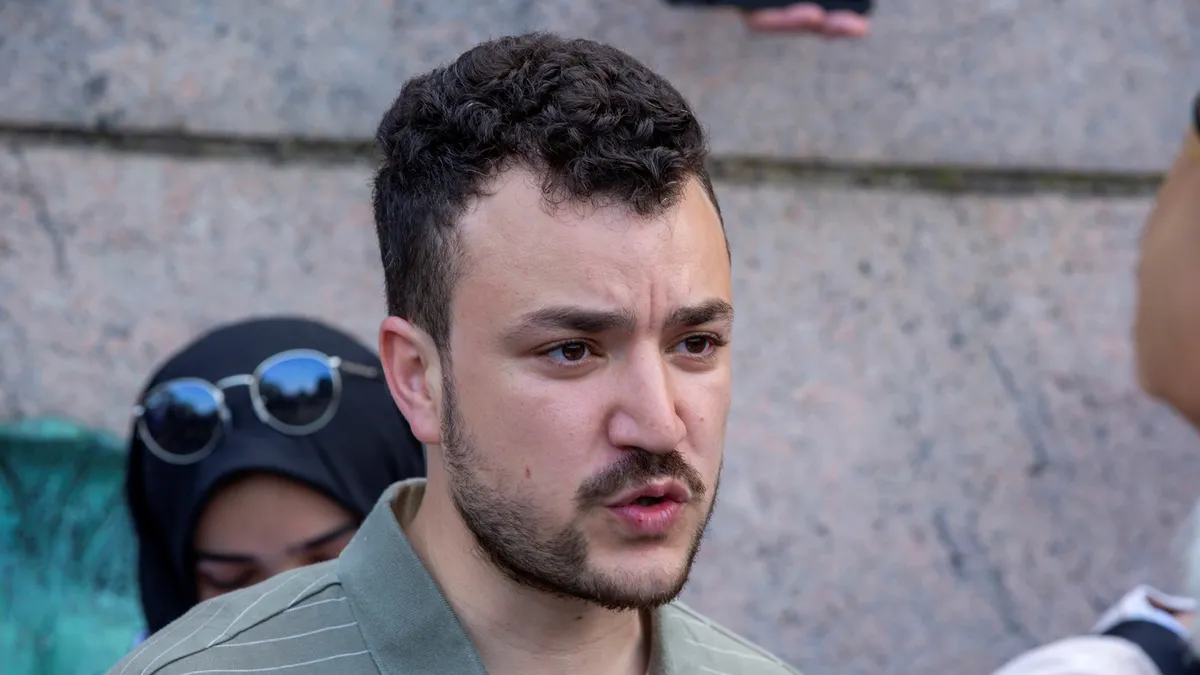
In a significant development, Mahmoud Khalil, a pro-Palestinian activist and a member of the Columbia University community, has been released from an Immigration and Customs Enforcement (ICE) facility in Jena, Louisiana. His release came on Friday evening after more than three months of detention, raising important questions about immigration policies and the treatment of detainees in the United States.
Upon his release, Khalil expressed his overwhelming joy at the prospect of reuniting with his family. He stated that the first thing he plans to do is hug his wife and meet his newborn son, who arrived during his time in custody. This personal moment underscores the emotional toll that prolonged detention can have on individuals and families.
Reflecting on his experience, Khalil emphasized the plight of others still trapped in the immigration system, stating, "The hundreds of men who are left behind me shouldn't be there in the first place." His comments highlight the broader issues of immigration detention in America, where many individuals face dehumanizing conditions.
Earlier on the same day of his release, U.S. District Judge Michael Farbiarz issued a ruling that granted Khalil bail, a decision that has faced criticism from the Trump administration. Khalil, who holds a green card and is married to an American citizen, was initially arrested by ICE agents in New York City in March. Despite a separate ruling by an immigration judge in Jena denying his request for asylum and ordering him to remain detained, Judge Farbiarz's bail order took precedence.
The judge's order outlined specific conditions for Khalil's release, stating that he would not be subject to electronic monitoring nor would he be required to post a bond immediately. However, the order does require Khalil to comply with certain travel restrictions. U.S. Magistrate Judge Michael Hammer mandated that Khalil surrender his passport to authorities at the Jena detention facility and limit his domestic travel to specific locations, including where he resides with his in-laws and where he may meet with his attorney for court appearances.
The release of Mahmoud Khalil from ICE custody not only marks a personal victory for him and his family but also raises critical discussions regarding immigration policy in the United States. As Khalil returns home, he advocates for the rights of those still detained, calling attention to the urgent need for reform in the immigration system. His situation serves as a reminder of the ongoing challenges faced by many individuals navigating the complexities of immigration laws.